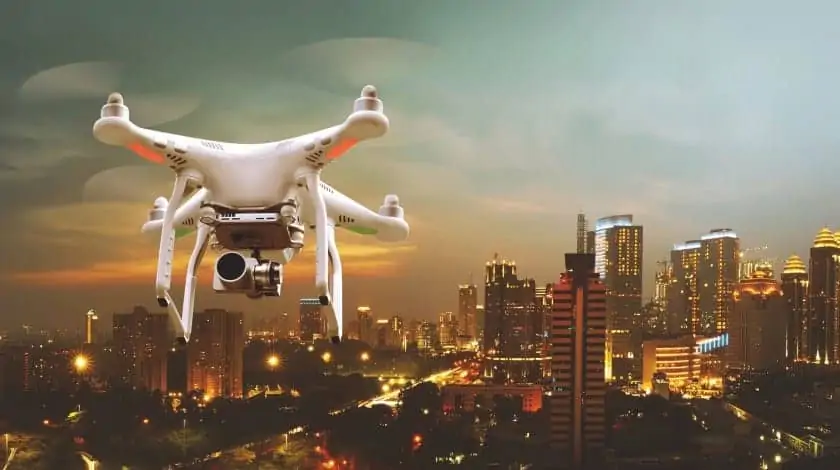The Transport Systems Catapult, a transportation innovation centre, has announced that it will lead a new UK Department for Transport (DfT) research and development project which aims to lay the groundwork for a safe working environment for commercial UAV (unmanned aerial vehicle) use in the UK, enabling safe sharing of airspace with traditional aircraft and beyond visual line of sight (BVLOS) operations of drones.
The project will explore a future Unmanned Aerial Vehicle Traffic Management (UTM) framework that could help to enable future service providers, operators, manned aviation stakeholders and regulators to participate in the intelligent control of airspace. Currently, numerous services seeking to support the commercial use of drones are being developed independently of any agreed framework. This makes a consistent approach to traffic management difficult, which is stalling progress in the sector.
Recent research by PwC suggests that the drone industry will be worth £42billion to the UK by 2030 with over 76,000 drones in use, with a third by public sector. However, the TSC recognise that the window of opportunity is small and urgent action needs to be taken to develop safe, regulated environments in which drones can operate. This will allow businesses wishing to operate in the sector to push forward with new products and service offerings.
The TSC will work alongside Altitude Angel, ANRA Technologies, Cranfield University, NATS, Satellite Applications Catapult and Thales UK to develop the requirements and validation methods for a UTM framework. The outputs from the project will be made public via a white paper.
Speaking about the project Mark Westwood, Chief Technology Officer, the Transport Systems Catapult, said: “There is industry-wide consensus that drone technology will be impactful, disrupting the remote sensing, infrastructure inspection, surveillance, emergency response, and transport and logistics sectors over the next decade. To enable the UK to maintain a pre-eminent position in this space, there is a need for a focused initiative to generate a safe operating environment with reduced barriers-to-entry. We are bringing together leading industry companies and experts to make this happen, opening the door for the emerging drone industry in the UK to flourish.”
Paul Febvre, the Chief Technology Officer, Satellite Applications Catapult said: “Satellites are already used for the reliable positioning and communication to provide safe Air Transport Management systems on a global scale. We anticipate that the emergence of drones brings both challenges and tremendous opportunities, with integration of advanced terrestrial and satellite systems required to support the revolution in air-space operations.”



















